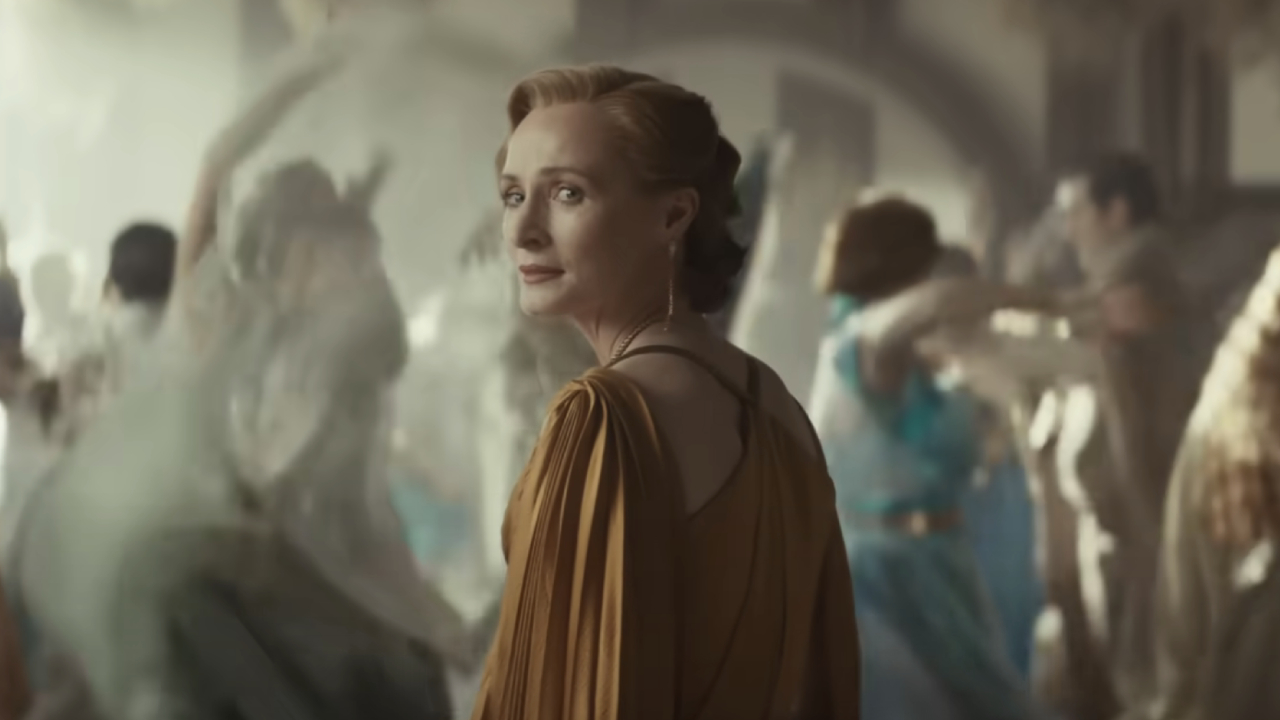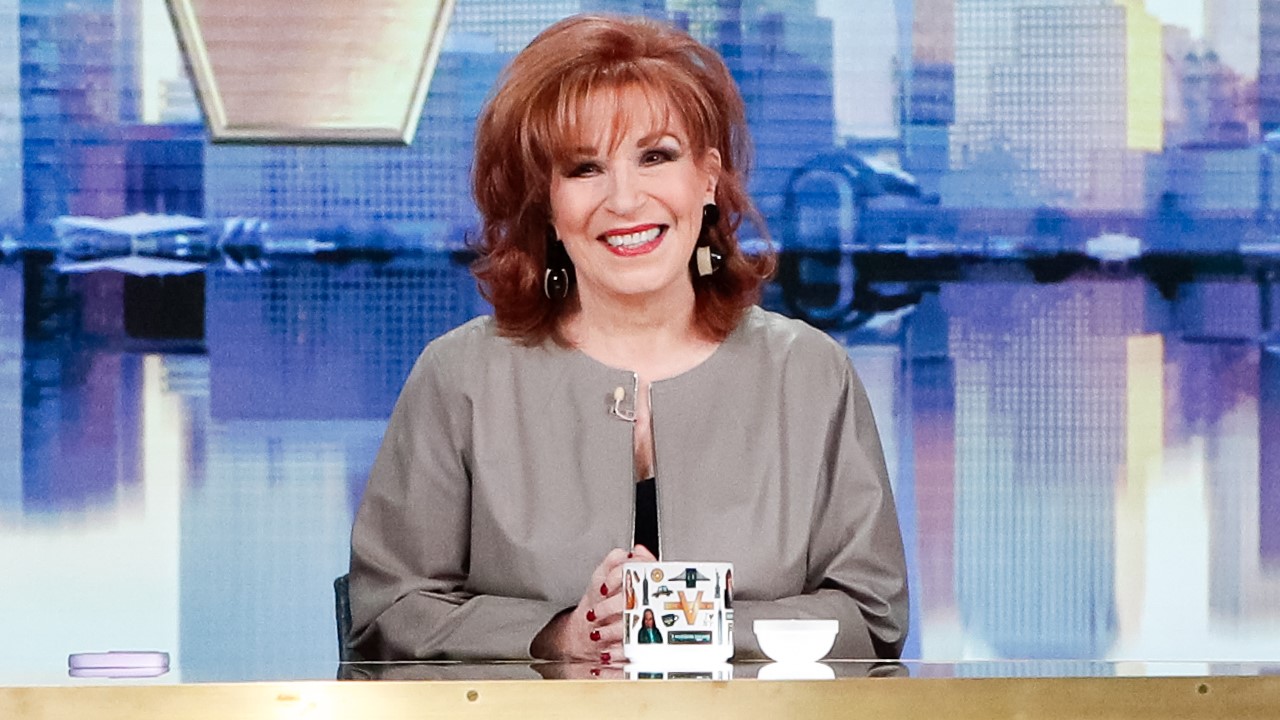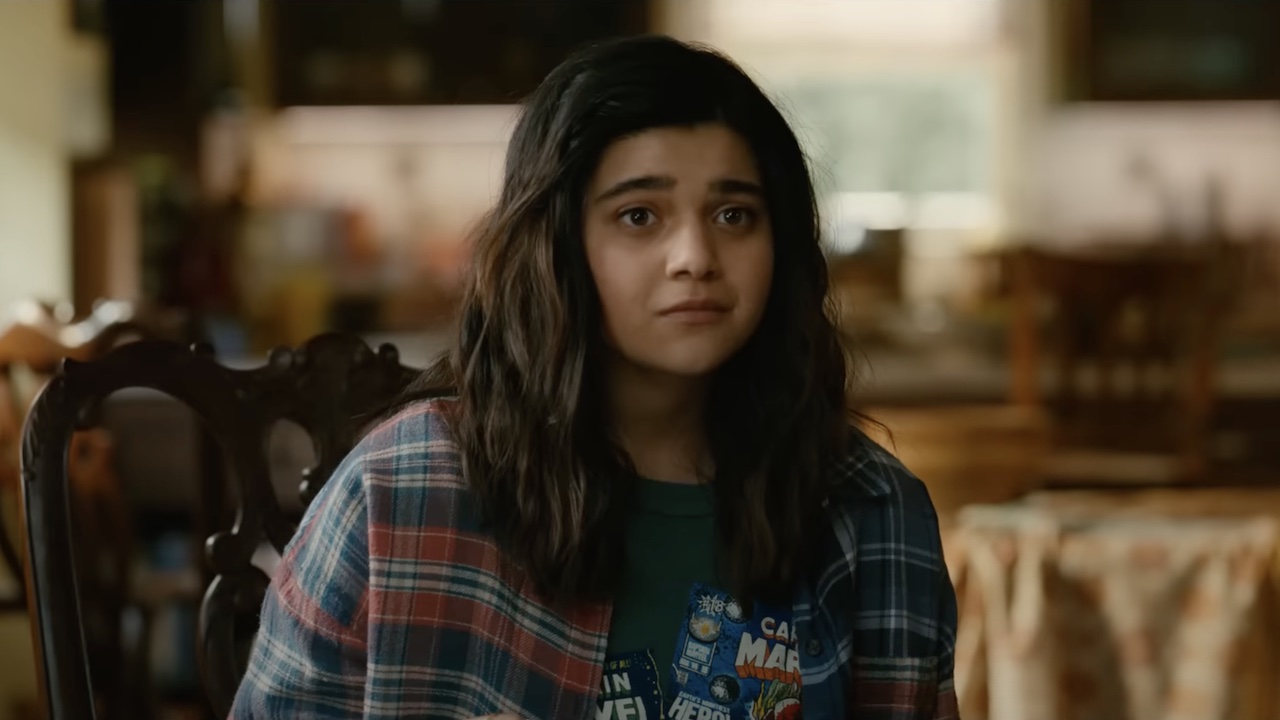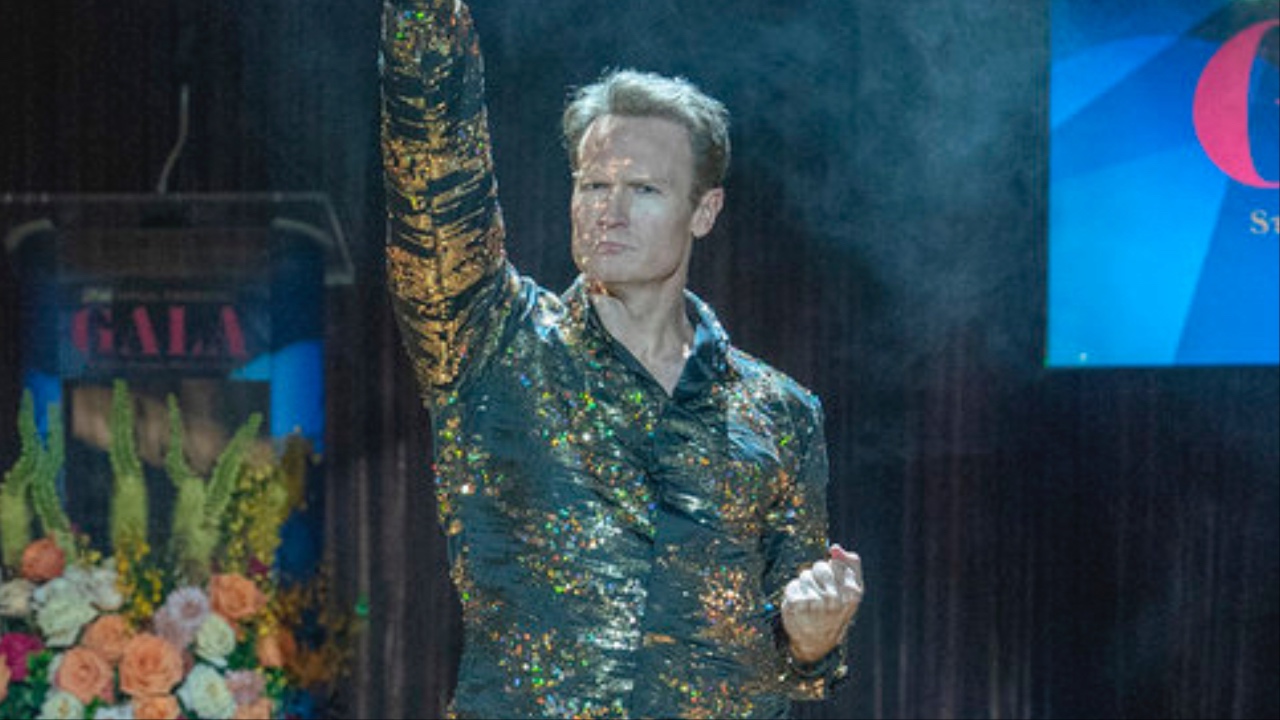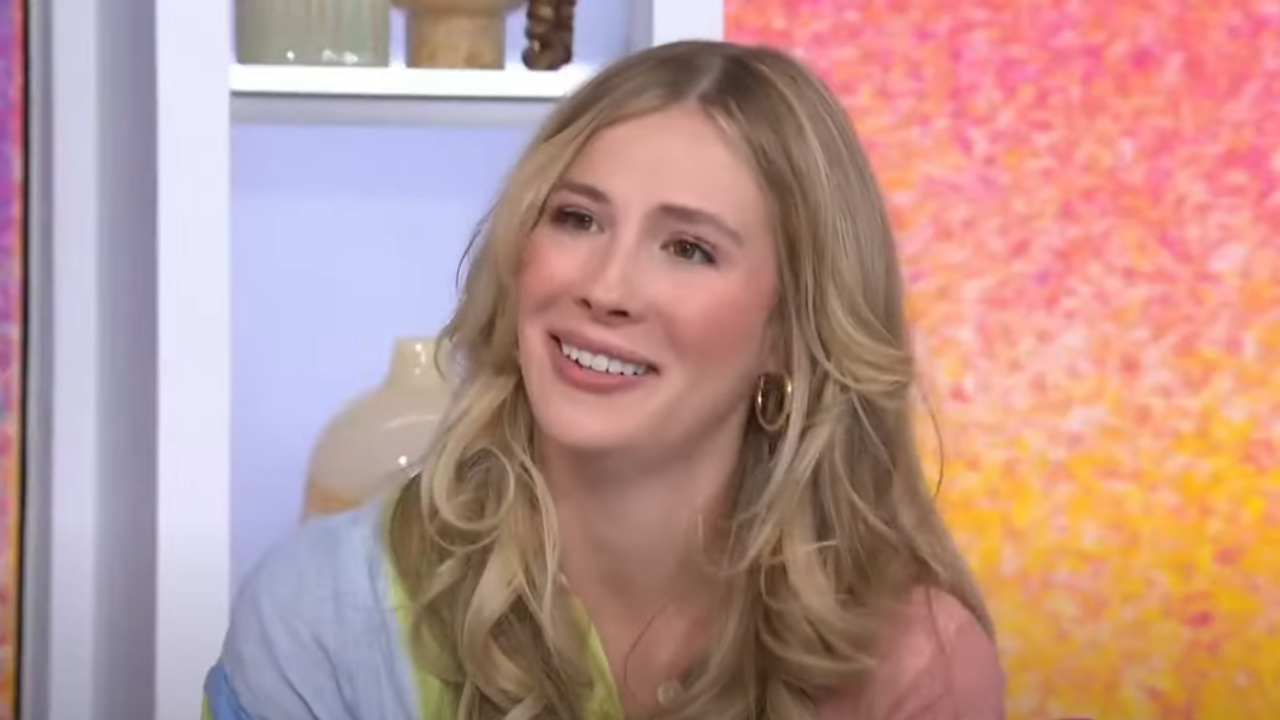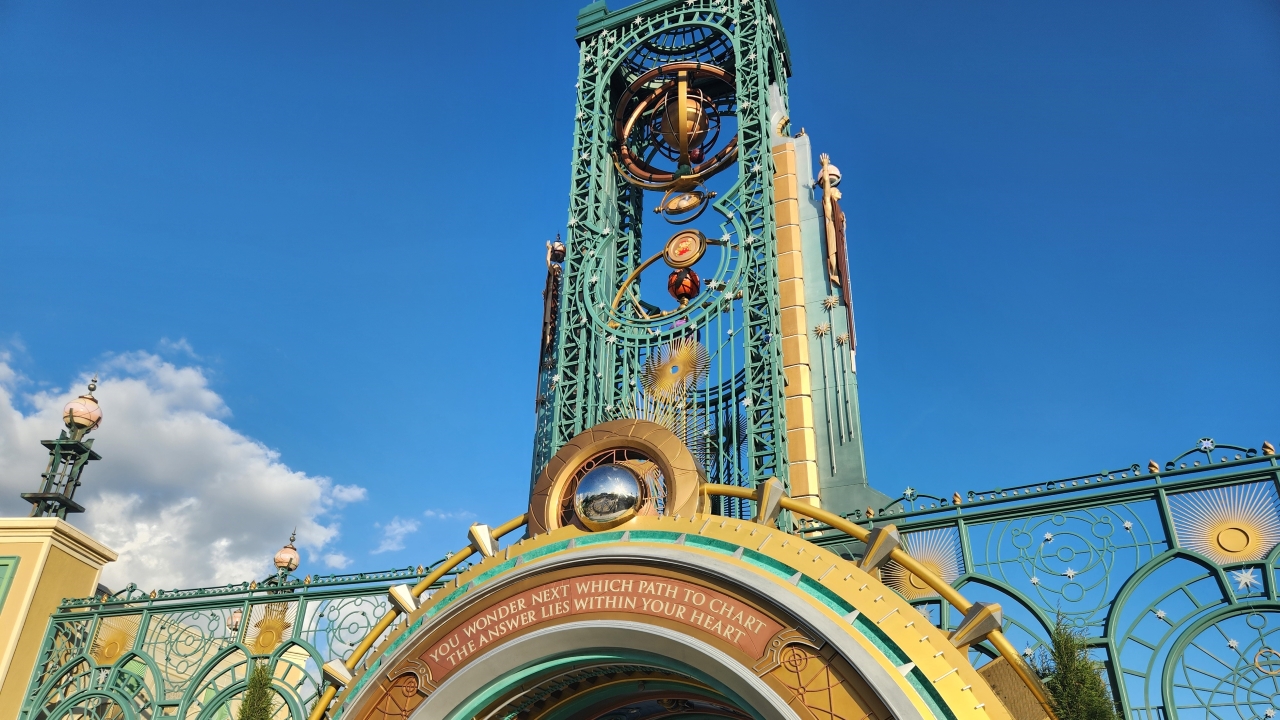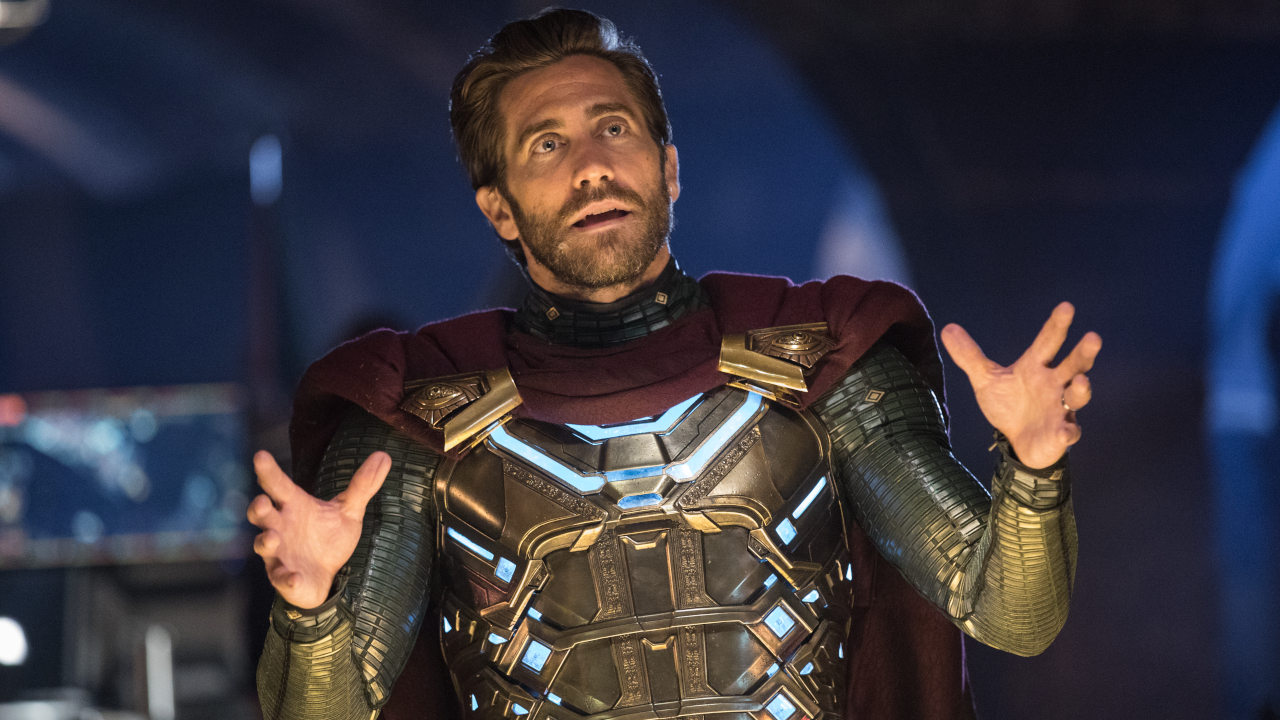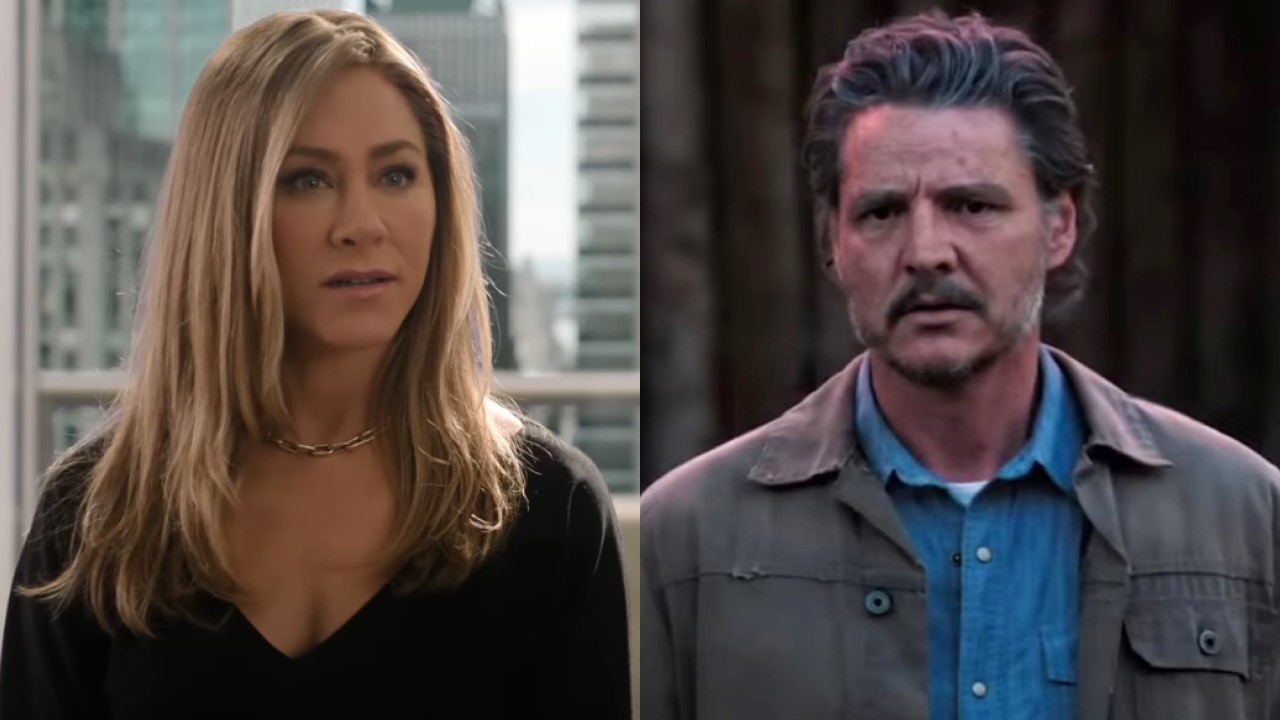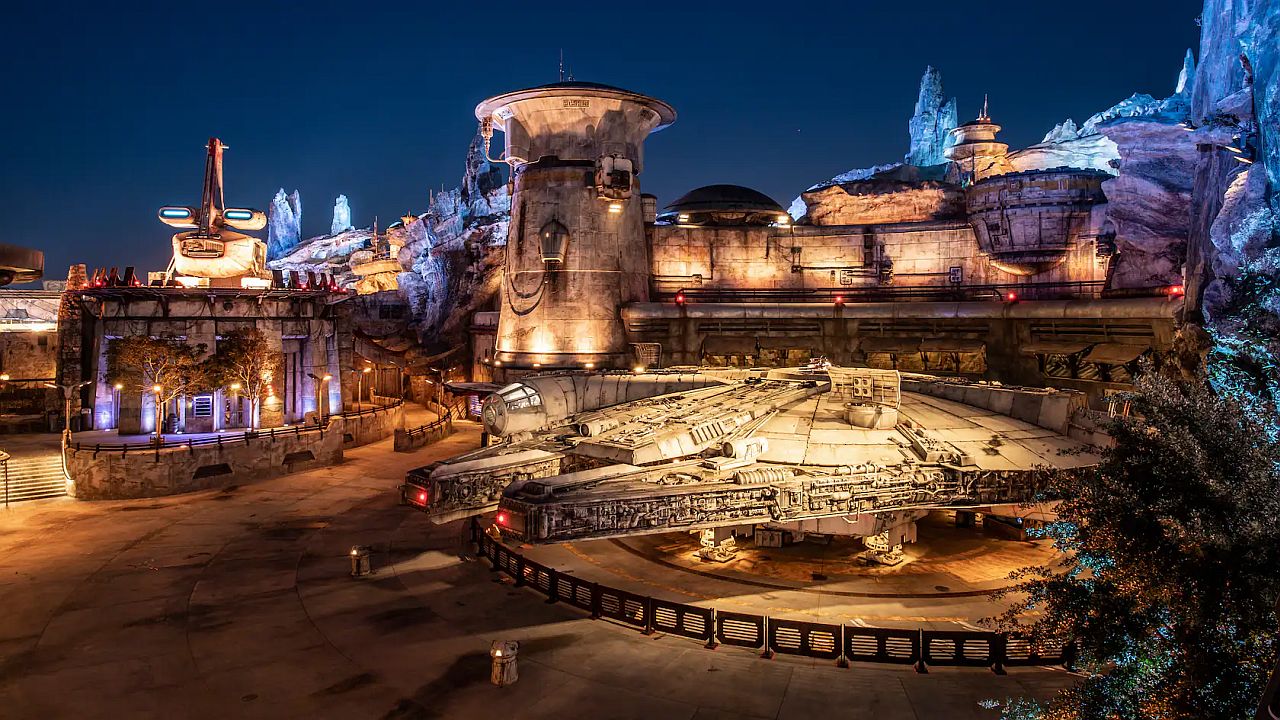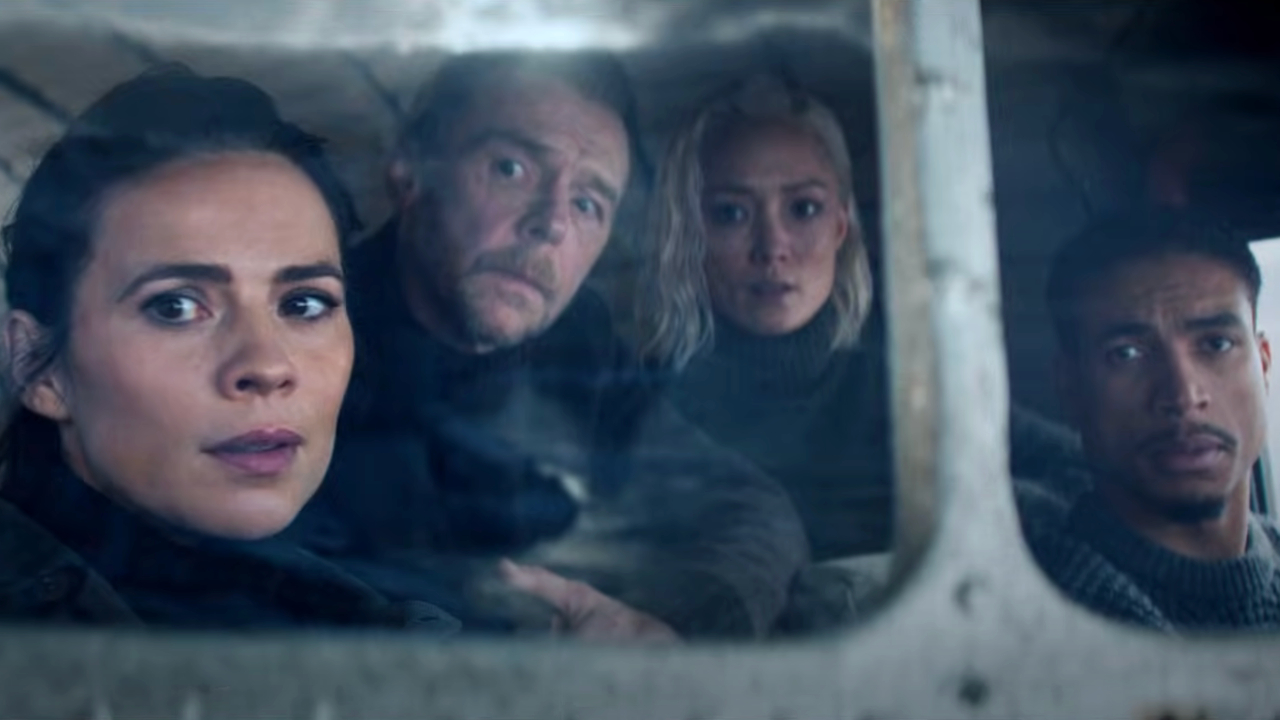Spartacus Creator Steven S. DeKnight And Stars Talk War Of The Damned (Part 2)

Earlier, we posted the first part of the Spartacus: War of the Damned conference call that series creator Steven DeKnight and stars Liam McIntyre, Todd Lasance and Cynthia Addai-Robinson did with the press in anticipation to this Friday's premiere. Here's the second part of the interview.
As mentioned in Part 1 of the interview, there is some talk about how the series will end. It's vague and if you're familiar with Spartacus' story, it's not all that spoilery relatively speaking, but read on with that in mind.
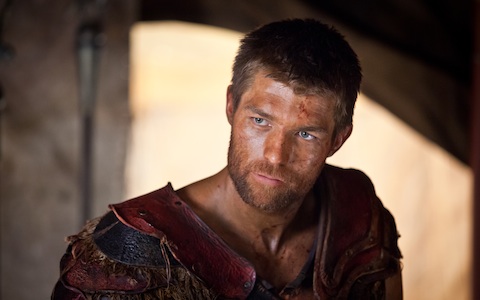
I’d like to follow-up a little bit about the vision that you had for this season. And now you mentioned the new show about how war changes people and maybe their religious beliefs. You’ve already hinted earlier that you wanted to make this one the bloodiest and give us some more good looking bodies like Todd. Did you want to show a little bit more? Because what I’ve seen so far of season 3, I see kindness and mercy but I also see insanity of the war. So do you basically already hint a little bit of what you make your next show? So what was your vision for this season?
Steven S. DeKnight: Something that was very important to me and Rob Tapert going into this season was not to shy away from the brutality of our heroes. That historically, actually historically it was much worse. The rebels broke out and basically raped, pillaged, and murdered their way across the land. So we always wanted to show that and to explore, you know, how that in a way the rebels are right in what they’re doing. They’re lashing out at the society that tortured them, and murdered them. On the other hand, they’re not lashing out at people that are guilty. The innocent get cut down just as much as the ones that perpetrated the crime. So it’s a very grey area morally with what the rebels do.
And there’s a lot of discussion with Starz, and this discussion went all the way back to the first season when the rebels were breaking out of Batiatus' Ludus, the question came up, “Well there are women in the ludus. Shouldn’t they spare the women?” and Rob Tapert and I went, “Hell no. Of course they shouldn’t spare the women.” These are the same women that were standing up on the balcony, you know, yelling for two gladiators to kill each other. So just because they’re women, doesn’t mean that they’re forgiven for their crimes in our world. And that really carries through this season, to an extreme. We explore some pretty dark, brutal things that happened on the rebels side. That really make you question whether or not you want to be rooting for the rebels. There’s a particular episode early on that is very, very brutal. Episode 3.
It also gets you an insight into why some of the characters are the way they are and what happened to them in the past. So we really wanted to explore that for this season and the war. And not to make it cut and dry, clean, here are the heroes and they’re fighting the bad guys. I think that’s always, ultimately, unsatisfying. And something we’ve always really, really pushed to do on Spartacus is to make you question our heroes and at a certain point, make you love our villains.
Liam McIntyre: And just around that framework that you talk about Crassus and his compassion for slavery. And his respect for Spartacus as a slave. While others in the Roman camp say he was just a slave, he’s pretty good for just a slave. He’s got the sort of sense of compassion for slavery, or understanding of their plight. Whereas you juxtapose that against the newly free rebels who are not as compassionate shall we say.
CINEMABLEND NEWSLETTER
Your Daily Blend of Entertainment News
Steven S. DeKnight: And I think you brought up something that is so important in this season. And something I wanted to make clear from the first episode of what makes Crassus different, unlike Glaber, unlike (Cassinius) and (Furious) who go after Spartacus that you’ll see early on in this season. They don’t, they always refer to Spartacus as that slave, that he’s nothing but a slave.
Crassus looks at him completely differently. Part of that I think Crassus is exposed to his own slaves who are very well educated. And he looks, he doesn’t look at Spartacus for what he’s been branded. He looks at Spartacus for what he’s done. And he sees that Spartacus is a brilliant tactician. And, you know, a man of keen intellect when it comes to battle. And he realizes that Spartacus will not be brought down with brute force. That to beat Spartacus, you have to play Spartacus’ game better than he does. Which is very different than Glaber from last season. Crassus does not dismiss Spartacus. He realizes, you know, just how much of a threat he is. And how much of an opponent he is. And that kind of respect, I think, was really, really important. And it works the other way around too. Spartacus has a very begrudging respect for Crassus.
Liam McIntyre: I quickly realize that I’m up against something quite different that I haven’t really seen before. I’ve been playing off the Roman idea that I’m no threat to them, I’m really just really good at what I do. And then all of a sudden someone comes along who knows how to think like I do and can sometimes outthink me. And it puts a real big spanner in the works, it’s interesting.
Steven S. DeKnight: It does. I’m going to start using that phrase.
Liam McIntyre: Spanner in the works?
Steven S. DeKnight: Spanner in the works.
Steven mentioned Victory in the finale. I assume you’re done shooting. So you’ve done, you’ve shot the Spartacus death. Can you talk a little bit, he publically just admitted of crying, so what was the last day of shooting for your guys with the death. And is Spartacus’ death the bloodiest that we’re going to see? Or is he going to be…
Liam McIntyre: Nobody said the word death now, easy darling.
Steven S. DeKnight: Hey now.
Well we were talking Titanic here.
Liam McIntyre: I know, you can justify this.
Steven S. DeKnight: Historically most people think Spartacus was crucified because that’s what happened in the Kurt Douglas movie. (Certainly) his body was never found. So we have some leeway. I can’t say, you know, we stay pretty close to history. But there will be a few surprises in the end.
Well anyways, can the actors just in general talk about the last day of shooting? If it was a tearful day because they were saying goodbye to everybody else and stuff?
Todd Lasance: Can I just move in on the fact… I was just going to say Liam, because he won’t talk about this, Liam gave the most incredibly humbled, beautiful speech I’ve ever witnessed. Out of any production I’ve ever worked on. We all came in for his last day and we got to see his final moment, which was a battle scene. And seriously it was incredible to be there. Everyone was just, yeah, in tears. There was a lot of emotion. And Liam being the most humble person I think I’ve ever met. Gave the most beautiful speech, talking about thanking everyone else, and talking about everyone else, and what the production gave for him. Didn’t mention himself once. So for me, as an actor coming into the show just in the final season, it was a beautiful moment to see him not only finish, but also give an incredible speech. So that’s my perspective on it.
Liam McIntyre: Thanks, that’s sweet. The thing is, I think the actors and the crew, everybody who was involved with this to a man, to a woman. We can probably all agree that it fundamentally changed our lives in some way this experience. Two years ago I don’t even know, I’m almost a completely different person to who I was two years ago. And it’s an almost completely due to Spartacus. Spartacus is just one of those things that happens to very lucky people.
Cynthia Addai-Robinson: I was just going to add on top of this too. As far as the work experience and working in New Zealand, a lot of us were very far from home. And so we’re sort of working in this bubble and we became sort of a mini family. We all sort of lived close to one another, you know we’re seeing each other for very long shoot days. So you get really used to it, and you realize as you’re wrapping up a show and a series, you’re also wrapping up your time in a really beautiful place with really beautiful people. So I think, you know, all of us were really trying to be excited about going back to all of our respective homes. But it was also very bitter sweet in saying goodbye to a lot of the wonderful crew and other people that are based in New Zealand.
Liam McIntyre: Yeah, it’s quite funny. I remember when I got the job one of the things that (unintelligible) said to me was (unintelligible) like a family. And it will be like being part of a family. And he was unbelievably right. You’re right, it was just hard. Not only was that the most grueling and exhausting experience of my entire life, (unintelligible) demanding so much of every actor that was in it. But, yeah, at the same time you were saying goodbye to a family. It was hard, very hard.
We talked so much about Spartacus versus Caesar, what about Liam versus Todd? Who would actually win in real life? And for Steven, did you ever count how many buckets of blood have been used through all these seasons of Spartacus?
Steven S. DeKnight: No, I lost count. Too many pools of blood that we use.
Todd Lasance: I read like 300, what do you guys have gallons? Of blood.
Steven S. DeKnight: Yeah, it was a lot. A lot of people don’t realize we use a lot of CG effects. But a lot of the CG blood effects, is actual real fake blood. That we explode, and push, and cut.
Liam McIntyre: If I don’t see another blood balloon, I’ll be so happy.
Steven S. DeKnight: We have these blood balloons and we shoot them against a green screen. Usually with the actors smacking the shit out of them.
Liam McIntyre: It’s actually fun.
Steven S. DeKnight: I think we should have in the Spartacus box set, just one blooper reel of all the blood bad stuff …what I love about when the actors miss with these blood bags is just how hard on themselves they are. You can see how upset they are that they missed that.
Liam McIntyre: That’s because we have Al Poppleton sitting there next to us going, “Mate, be less shit. Be less shit and do it right this time.”
You’re going to have to play Bond next time so you can wear a tuxedo right?
Liam McIntyre: That would be amazing. Oh my God. I once had all of my legs, well not all of my legs, all of my limbs stuck together with blood. Because I was covered in so much blood that I couldn’t actually separate my body from the blood.
And Liam versus Todd? Who would win honestly?
Liam McIntyre: Oh Todd is brutal, he’s built like one of those Michelangelo statues that you get in Rome. It’s…
Todd Lasance: No mate, I stopped working out a little bit. I finished that training regime.
Liam McIntyre: That’s hilarious, you stopped training. I’m sorry but you’re just built like no other human being can be built.
Todd Lasance: We would just hug it out. That’s the thing, no fighting.
[[ br. br ]] Liam McIntyre: No, but it he’d hug the breath out of me.
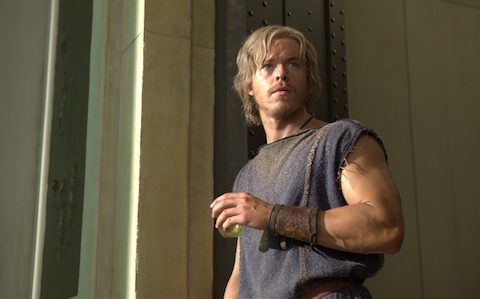
I wanted to find out what have you enjoyed most about your Spartacus experience? And what, also, are you maybe going to take away from it both on a personal and professional level? If you don’t mind me asking?
Steven S. DeKnight: You know, one of the things I have enjoyed most about Spartacus is the joy of watching it. And just being amazed at how it all comes together. I mean, this is the kind of show that I just love. I think having the opportunity to play with language like this as a writer has just been phenomenal and, you know, unless we do a Caesar spinoff I doubt will ever happen again. And the faith that Starz and Rob Tapert placed in me to do this slightly odd, effected, constructed language was just enormous. And there was a lot of worrying early on. There was a lot of discussion about if the audience is going to understand anything that’s being said. And, you know, I (unintelligible) to get used to the way people talk. But as a writer, there’s just no greater joy to have the freedom to play with language like that. And to see your words come to life on screen by such fantastic actors, was just an absolute joy. What were the other two parts of the question?
Just maybe what you were going to take away from it on both a personal and professional level?
Steven S. DeKnight:Well professional level, it’s just – I can’t even begin to explain what it’s done on a professional level. I think, for me, on a professional level, it’s done what it’s done for some of the actors. It took me from writing on shows as at the time I was the co-executive producer, you know basically working for other people. And happily working for other people, actually working for Joss Whedon when I landed this job. But it took me from being a writer to being an executive producer/creator. Which is a very difficult set for a writer to make. It really requires a leap of faith from someone to give you that opportunity. It’s absolutely changed my career. It put me at a different level. It put me into the exclusive show runner category. Which aren’t a lot of in Hollywood. So on a professional level it’s just been stunning.
On a personal level it’s just – I’ve never created a show. And I’ve never guided a show from the very beginning to the very end. And just to go through that process and all the ups and downs, the triumphs and the tragedies from where we started when we first aired. We were universally hated, reviews were terrible. And to follow that to the end of the season where it all turned 180 and we were getting praised. It was such a roller coaster ride and, you know, the deep lasting emotions about Andy about having, you know, helped discover him and bring his talent to the world. And then to find out he was sick. And then to be told he was better and only to relapse and pass away, was, you know, so heartbreaking. It’s still difficult to talk about. And then the roller coaster ride of keeping the show going against all odds, bringing it back after the prequel. And see the ratings just keep rising. On a personal level it’s just – it’s hard to describe. It’s stunning. It’s a deep, deep gratitude for having had this opportunity.
To Liam, what is kind of stepping back into the role this season, what maybe or did you discover any new acting challenges with the role this season? And then part two of the question, how maybe have you seen yourself sort of grow as an actor playing this character?
Liam McIntyre: Well it’s been a journey of a lifetime. Like Steven for saying. For me, to come out of such unbelievable tragedy and agony. And this year, I guess I had that year behind me to feel like, “Okay, I can be Spartacus. This can be my role a little bit this year.” I was so overjoyed that the fans kept loving the show after Andy’s amazing job and me just trying to make sure I can honor that. And this year I was like, “Well what else can I bring to this guy?” and it was great.
The writers gave me a whole new guy. He’s obviously the same Spartacus, but I mean, in my normal life growing up I was never like the alpha male. I remember getting into the boot camp for the very first time weird to see people like Manu Bennett, these just monstrously powerful men, you know. And these amazing characters. And I just sort of stand there, especially as I was just getting into things. When I was very underweight and trying to train my ass off. Going, “Hell I’m not going to be able to lead these people.” Because there is an element of life that imitates art. So when you’ve got that many strong men together, even though they’re acting, they’re also kind of not acting at a certain level.
That first year was an interesting process in seeing what made me a leader anyway. This was my first experience with being the lead of the show and things like that, so it was quite strange. And this year it requires Spartacus to be absolutely the dominant male as it were. He had to be absolutely sure of himself, absolutely able to in a heartbeat say, “this is what we’re doing, and there’ll be no discussion.” And to embody that, for a person who historically like me – I was, I’m just not that kind of strong, tough, unwavering guy in real life. So that was a fascinating challenge. It’s why you get into acting. To just be people that you want to be. Spartacus is an amazing character and a phenomenal human being.
The idea that he really exists, still actually boggles my mind. That a guy could lead so many desperate cultures of down trodden people to any kind of unity like that is incredible. But it was, it was a fantastic opportunity to build on what I’d been learning every day of the previous year. And, you know, I’ve seen a rough cut of the final episode and, you know, to see the first episode I did of this show versus the last episode. I’m so grateful for the opportunity I’ve been given. I’ve gotten to grow so much this year. I’ve learned so many things, I’ve got to work another astounding selection of actors and build relationships with the ones that I’ve worked with last year. I mean, they have amazing talent on this show and I love working with people like Dustin Clare, he’s just – you sort of work with him and he’s so effortless. You just, “Oh, okay. That scene seemed to go well.” And then you see him on camera and you go, “Geez that guys amazing.” You know, he’s truly fantastic.
So I’ve gotten to learn so much from my fellow actors. I’ve gotten to be directed by incredible people. I got to work with truly great scripts that you just don’t get. And, you know, people like Rob Tapert who are just so inspired in their vision and so clear in their message of getting that vision. Early in the first one, in Vengeance, I was like, “Wow, you get to this stage in your career and it feels like your cheating.” Like I’m used to working on short films and student films with no crew and nothing, and then suddenly you’ve got hundreds of people just trying to make your performance look wonderful. It’s opportunities like that that are just incredible in an actor’s growth. And that’s why I think so many of those in the cast have had their lives completely changed by what is truly a phenomenal and one of a kind show. We’ve all got to grow so much.
Steven we’ve talked a lot about the violence that’s in the season. But are there going to be any epic battles that you can talk about? And just for the actors, so they can think about it while you’re talking, I’d like them to tell me what their favorite episode is when you’re done.
Steven S. DeKnight: Sure, there are many epic battles. We start off at the tail end of one, that we see in the trailer, a great reveal of Spartacus coming up over a hill charging on a horse. And we really wanted to use that image, you know, this season is different. The scope is just spectacular. There’s a running battle that happens mid-season that I think is pretty damn cool. And, of course, we build to an epic conclusion. I think the biggest battle that we’ve ever attempted, which is truly spectacular and I’m still scratching my head how we actually pulled that one off.
But yeah, the battles are fantastic. But more importantly, just like the early days of this show with the gladiator fights. The important thing for us was, what’s the emotion behind the battle? Who wants what? Who needs what? What are the stakes for the characters? Not just, you know, big fights. And that was a tricky part this season because the battles are so gigantic, but I think we managed to nail that one.
Thanks, and now the actors, favorite episodes?
Cynthia Addai-Robinson: I’ll go first I guess. Well I’ve only seen the first couple of them, so when we’re performing it versus what the final end result is. Is, you know, a night and day difference from what I’ve seen from the first couple episodes. Because you have to remember too, you know, often times we’re essentially working in from of a green curtain and we have an amazing post production team. They’re kind of the unsung heroes of the whole thing. Because they, especially this season, and I think advancements in technology – it’s cinematic, some of these backdrops and environments that we’re using this season.
So I think the audience is going to particularly be into that. I can say that I think my favorite episode that we worked on, which I haven’t seen yet, is sort of more towards the end. And that would be episode eight. It was a monster, monster episode to shoot. And obviously can’t go into any details but I know, again, as a fan, as an audience member it’s one of the ones I actually can’t wait to see. And I’ve heard sort of little whispers about it, but I think that, you know, each episode we can’t afford to waste a frame, a word, a scene. Each episode is so dense, you know, there isn’t any one episode that’s kind of a lull in the season. Each episode ends and your jaw is on the floor and you’re like, “Oh my God. What’s next? What’s next?” so they’re all pretty powerful.
Liam McIntyre: For me, I just can’t wait to see Episode 9 and how that comes together. Because, for me, that’s just before the epic finale. So (unintelligible), I don’t know it’s sweet, it’s emotionally hard, and it integrates with history in parts I’ve been really looking forward to since the start of the story. And obviously again, I wouldn’t go through it and ruin it for people. But yeah, I was looking forward to some of that since I got the role. So there’s some stuff in line that I think you’d be really – well I’m excited to see.
Todd Lasance: It’s always difficult picking a favorite episode because they have so many different elements. Liam just nailed it when talking about the shifts and also what Cynthia said about leaving your jaw dropped. I’m going to go with both of their answers.
It’s so boring but it’s so true. Anywhere sort of seven, eight, nine. I mean there’s a lot for me to do personally in seven. But yeah Cynthia is right, there’s some jaw dropping moments which just leaves it hanging. And then the next episode just floors you again, you think, “No, it can’t get any better than that.” and it just continues to escalate. So yeah, any of those episodes in there the audience is just going to be gagging for the next episode. Because it’s one of those moments.
We were talking about relationships earlier Steven, and you mentioned that in a sense Kore and Caesar are kind of part of a surrogate family with Crassus and Tiberius. And I was just wondering, how did you develop the Crassus/Caesar relationship beyond commanding officer and commanded officer.
Steven S. DeKnight: Well to start with I took a page out of history. Crassus and Caesar, they have a very complicated relationship. They appear to be very close but they also, the letters that they sent back and forth that they really traded barbs. One of the most famous ones was Crassus came to Caesar’s aid and paid the ransom when Caesar was kidnapped by the pirates. But Crassus didn’t actually rush to pay it, and Caesar sent basically a, you know, rather irate note, you know, “Thanks for the payment, what the fuck took so long?” So they had a very, it was almost like a love/hate relationship. But Crassus definitely needed Caesar. He did not have the storied name that would propel him to the top of politics. And Caesar had the Julian name but had no money, he was broke. Crassus paid off a bunch of his debts and helped fund him in his political lies.
So we really wanted to explore the early days of that. That these are two guys that there is a mutual respect, and even I think, at the barest essence of their characters, a fondness for each other. But they are often at odds. Even though they’re working towards the same goal. They often don’t agree with each other. It’s a very rocky relationship. And really that was my building blocks for this relationship. But you will see as we go along, that Caesar is very loyal to Crassus. And Crassus does have a great respect for Caesar. In my mind, I think Crassus feels like Caesar is kind of like a son to him. And, you know, it’s almost like the son you wish you had. Which causes problems with his real son.
And Caesar and Crassus’ son Tiberius, this is really like, I played it as much as I could like two brothers. You know, each vying for their father’s approval. And it causes a very interesting dynamic and spins into a hell of a great story.
Todd Lasance: I like the way that you created this symmetry through a lot of so much of this season. Spartacus and Crassus, they’re not entirely separate from each other. And Spartacus and Crixus and Caesar and Crassus, they’re both very dominant in their two groups. And they’re both fighting for what they believe is right, they’re both similar but very different. There’s great symmetry in terms of all the stories this time around, I think it’s very nice.
Steven S. DeKnight:Yeah, we were definitely shooting for that two sides of the same coin feel with the rebels and the Romans.
Read Part 1 of the conversation here.
Spartacus: War of the Damned premieres Friday, January 25 at 9:00 p.m. Et on Starz.
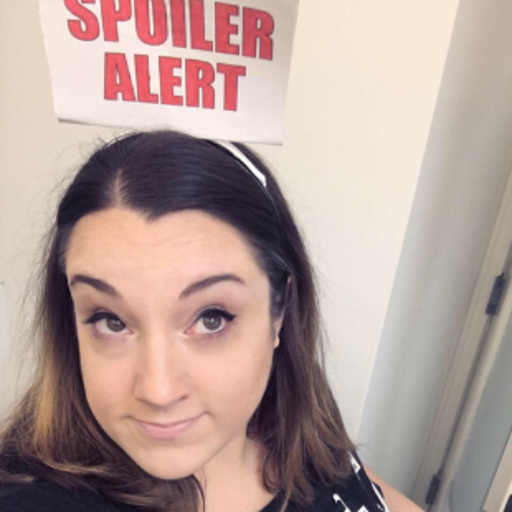
Kelly put her life-long love of movies, TV and books to greater use when she joined CinemaBlend as a freelance TV news writer in 2006, and went on to serve as the site’s TV Editor before joining the staff full-time in 2011 and moving over to other roles at the site. At present, she’s an Assistant Managing Editor who spends much of her time brainstorming and editing features, analyzing site data, working with writers and editors on content planning and the workflow, and (of course) continuing to obsess over the best movies and TV shows (those that already exist, and the many on the way). She graduated from SUNY Cortland with BA in Communication Studies and a minor in Cinema Studies. When she isn't working, she's probably thinking about work, or reading (or listening to a book), and making sure her cats are living their absolute best feline lives.
